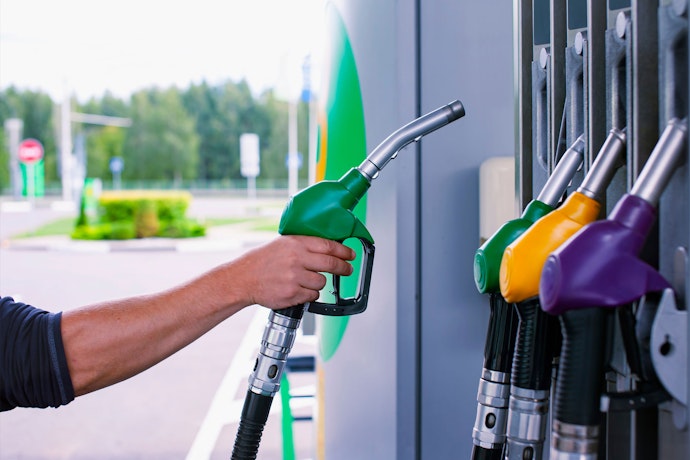How Much Fuel Does Idling Waste? What Engine Idling Means...
There are some serious implications of engine idling when it comes to fuel efficiency. Excessive motor vehicle idling...
Read more
All businesses that work with vehicles know how important fuel is and now with the fuel rising costs even more. For a fleet to be successful as well as be a worthy component to its competitors, a business needs to get the most out of its fuel consumption and use it as efficiently as possible.
Fuel costs represent a significant part of total fleet costs. While it is estimated that “approximately 15% of total costs are fuel costs, this can vary significantly depending on the fleet's type”.¹ Even a slight reduction in fuel costs shouldn’t be underestimated – “cutting down fuel costs by 10% can result in a 31% increase in profit”. This could make all the difference between a business “making a profit or a loss on the bottom line”.²
Knowing these facts is all well and good, but how do you work out fuel consumption and subsequently reduce it? Read on to find out what can help your business.
For commercial vehicle fleets in Australia, diesel remains the fuel of choice for light commercial vehicles, light rigid trucks , heavy rigid trucks, articulated trucks, non-freight carrying vehicles and buses.(3)
The types of vehicles on Australian roads have gradually changed over the years. Light commercial vehicles registration “increased by 4% between 2021-2022 (976,000 petrol powered vehicles and 3,818,084 diesel ones)”.(4)
The situation is very similar when compared to our closest neighbour. Diesel is also the main fuel used in New Zealand’s fleets. In 2022, “there were a total of 746,931 light commercial vehicles” (158,149 petrol powered vehicles and 588,782 diesel ones).(5)
A GPS fleet tracking solution generates reports, which reveal information about a business’ fleet that can be used to reduce fuel consumption. Here are four types of report:
The software enables businesses to plan better and select optimal routes in order to cut down on fuel wastage. Maps show the location and end destination of every vehicle for a better overview. Traffic, weather, and other eventualities are monitored so drivers can be quickly rerouted if needed.
Idling, accelerating quickly, and braking harshly are all causes of wasted fuel. Customisable driver behaviour reports show where and when this reckless behaviour takes place. Automatic text or email alerts can also be set up that notify managers of bad driving.
A decreased fuel consumption isn’t the only benefit of a fleet tracking solution. Here you will find additional advantages of a fleet management solution.
You no longer have to be kept in the dark about ways of how to reduce fuel consumption. Fleet management technology helps you get a better overview of your business and enables you to stay competitive and sustainable. Discover more about fleet management software and get a demo by visiting https://www.verizonconnect.com/au/
Sources:
(1-2) https://www.idae.es/sites/default/files/documentos/publicaciones_idae/documentos_10232_guia_gestion_combustible_flotas_carretera_06_32bad0b7.pdf
(3- 4) https://www.bitre.gov.au/sites/default/files/documents/BITRE-Motor-Vehicles-Australia-2022-FirstIssue.pdf
(5) https://www.transport.govt.nz/statistics-and-insights/fleet-statistics/sheet/monthly-mv-fleet
Find out how our platform gives you the visibility you need to get more done.




Find out how our platform gives you the visibility you need to get more done.
There are some serious implications of engine idling when it comes to fuel efficiency. Excessive motor vehicle idling...
Read moreWith fuel costs accounting for a large portion of your fleet’s total operating costs, it makes good business sense to...
Read moreFleets have been facing many challenges during the pandemic. Supply chain disruptions have affected businesses across...
Read morePoor fuel consumption can impact productivity and have a negative impacts on the bottom line. This is why monitoring fuel...
Read more